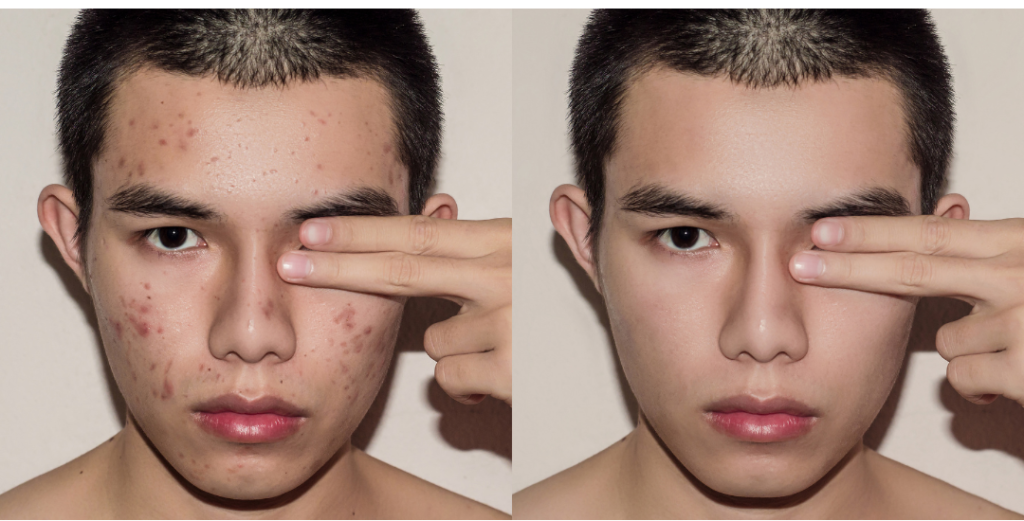Acne is a skin condition that affects millions of people around the world. Near 20% of the Canadian population is affected by acne. It can cause a great deal of embarrassment and can be very difficult to treat.
There are many different causes of acne, but the most common is hormonal imbalance. Acne can also be caused by certain medications, such as steroids, and by exposure to certain chemicals, such as chlorine.
So, what are the types of acne?
There are four main types of acne: blackheads, whiteheads, papules, and pustules.
- Blackheads are small, dark spots that appear on the skin. They are caused by a build-up of sebum, a natural oil produced by the skin.
- Whiteheads are small, white spots that also appear on the skin. Those are caused by a build-up of sebum and dead skin cells.
- Papules are small, red bumps that may be tender to the touch. Papules are caused by a build-up of sebum, bacteria, and dead skin cells.
- Pustules are large, red bumps that are filled with pus. They are caused by a build-up of sebum, bacteria, and dead skin cells, similar to papules.
Acne can also cause scars. Scars are permanent changes to the skin that can occur as a result of acne. There are two types of scars: atrophic scars and hypertrophic scars. Atrophic scars are small, depressed scars that occur when the skin is damaged. Hypertrophic scars are large, raised scars that occur when the skin is over-produced.
Acne can occur on the face, neck, chest, back, and shoulders.
There are many treatment options available for acne. The best course of treatment will vary depending on the severity of the acne and the individual’s skin type. Treatment options include topical creams and gels, special soaps, oral medications, laser and light therapy, and surgery.
Medications available for acne include a variety of over-the-counter and prescription medications. The most common treatments are topical creams and gels that contain benzoyl peroxide or salicylic acid. These medications can help to unclog pores and reduce inflammation. In some cases, oral antibiotics may be necessary.
Can compounding help to get rid of your acne?
Compounding can also be an effective acne treatment. Compounding is the process of customizing medication to meet the specific needs of a patient. This can be done by altering the strength of the medication, the dosage form, or the delivery system. Compounding allows for the creation of unique formulations that are not available commercially.
Compounded medications can be used to create custom topical creams, gels, foams, and oral medications that are tailored to the individual’s skin type and not commercially available in the needed doses. These formulations can be created with various active ingredients, such as benzoyl peroxide, salicylic acid, retinoids (products containing vitamin A), antibiotics, and hormones.
If you are struggling with acne, talk to your doctor and compounding pharmacist to see if compounding can help you find relief.
Live in Calgary and need a personal compounding pharmacy? Chaparral Pharmacy – Remedy’sRx can help you with all your compounding needs. Call us at 403-475-5544 and have a quick chat with our experienced pharmacists about your medications.
